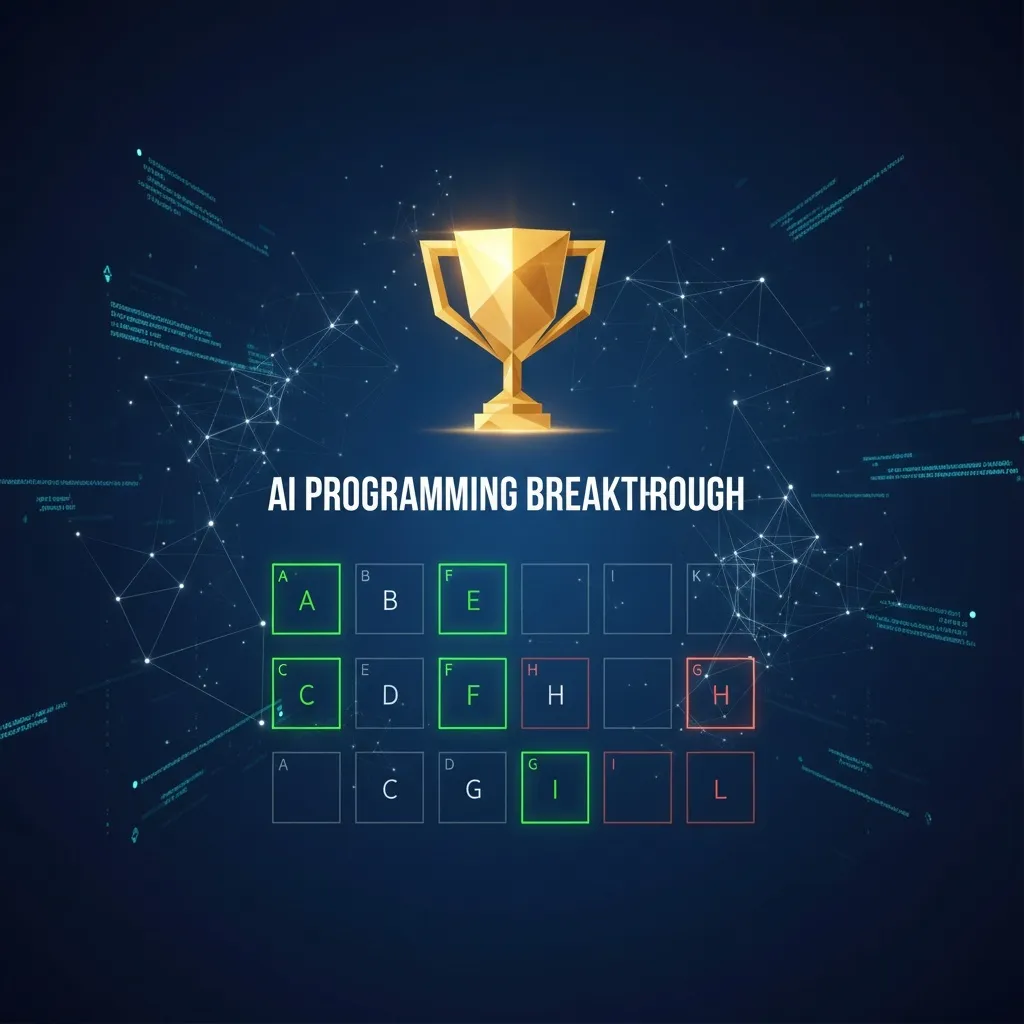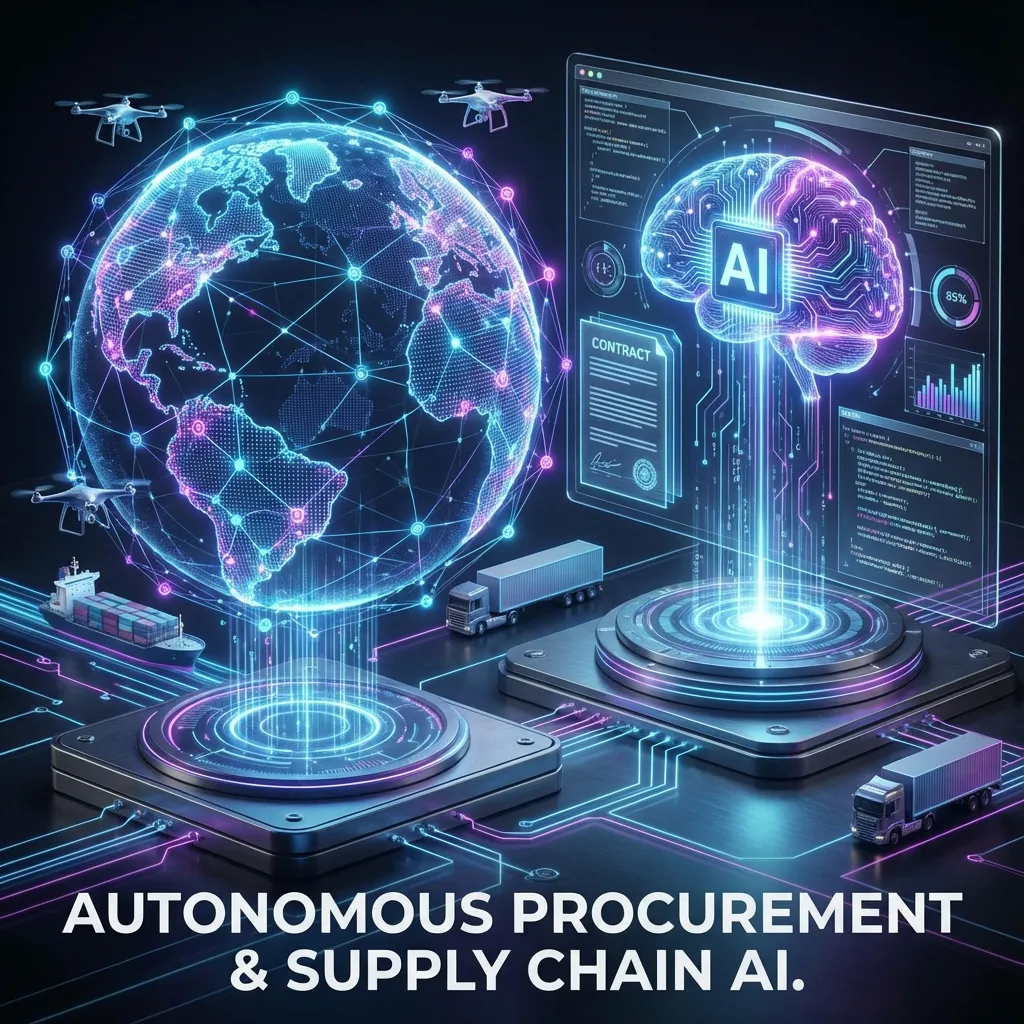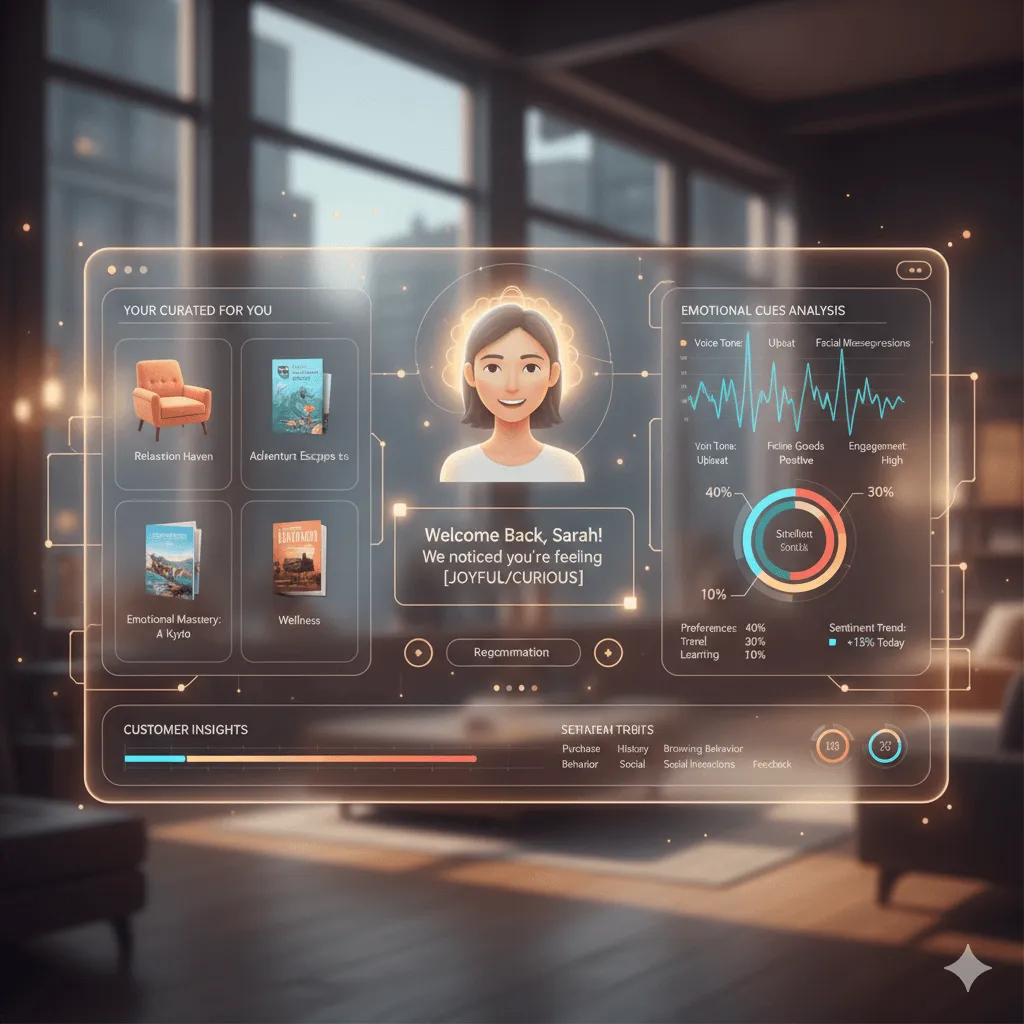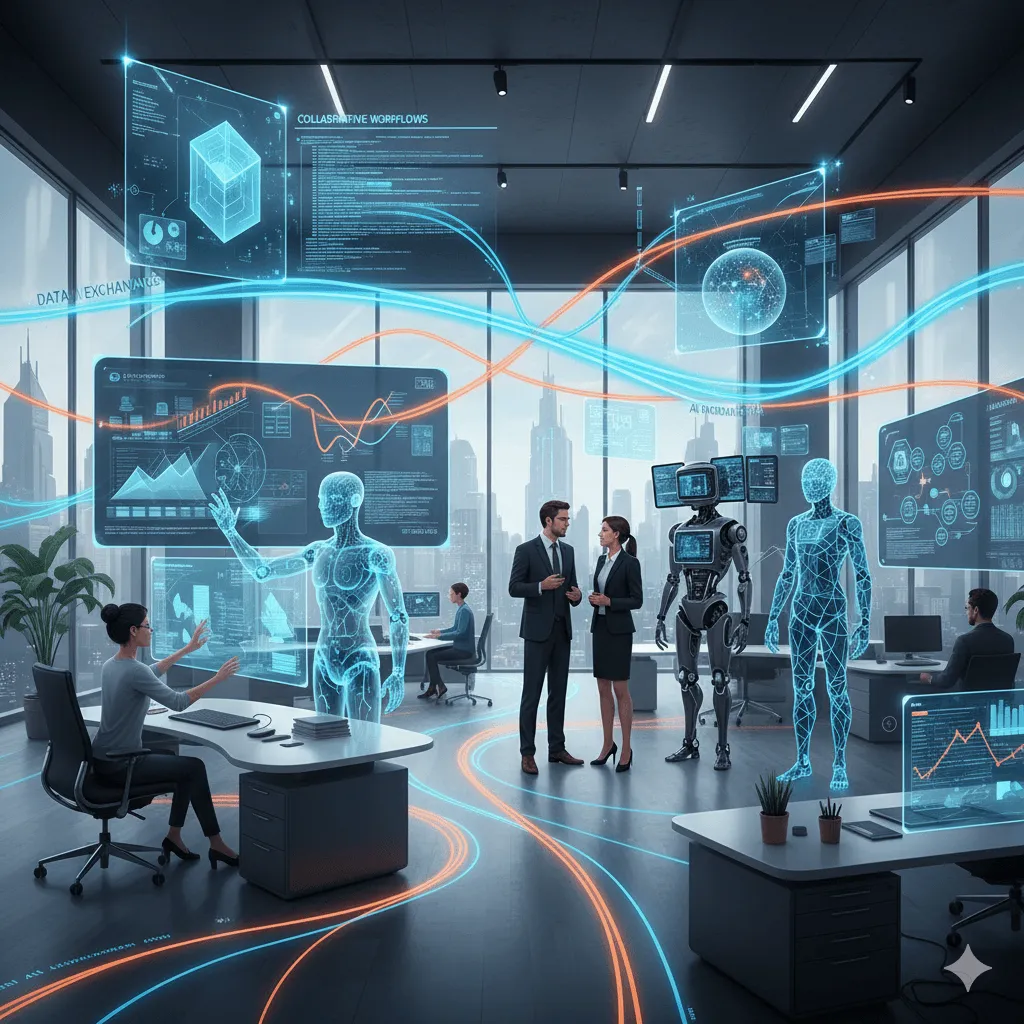Gemini 2.5 Deep Think: Coding Contest Winner


The AI That Just Rewrote the Rules of Programming Competitions
In a moment that will be remembered as a watershed in AI development, Google’s Gemini 2.5 Deep Think has achieved something extraordinary: gold-medal performance at the 2025 International Collegiate Programming Contest (ICPC) World Finals. But this isn’t just another AI milestone—it’s a preview of what’s coming for enterprise software development, and it should make every CTO pay attention.
On September 4, 2025, in Baku, Azerbaijan, 139 elite university teams from nearly 3,000 institutions competed in the world’s most prestigious programming contest. Among them, competing under official ICPC rules, was an AI that would fundamentally challenge our understanding of machine reasoning capabilities.
Gemini 2.5 Deep Think solved 10 out of 12 algorithmic problems in just over 3 hours, with a combined solution time of 677 minutes. That performance would have secured second place among all human competitors. But here’s what should keep you awake at night: it solved Problem C—a complex reservoir optimization challenge—that every single human team failed to crack.
Beyond Chatbots: The Dawn of True AI Reasoning
This isn’t your typical AI success story. We’re not talking about a system that got lucky with pattern matching or brute-forced its way through problems. According to Google DeepMind, Gemini 2.5 Deep Think represents advances in multi-step logical reasoning, parallel problem-solving, and something that’s been the holy grail of AI development: genuine abstract reasoning.
The system works by deploying multiple Gemini agents that generate different solution candidates, test them in virtual terminals, and iteratively improve their approaches. It’s essentially running a miniature software development team in its head, complete with code review, testing, and optimization cycles.
Dr. Bill Poucher, Executive Director of the ICPC, called this “a turning point” that “marks a key moment in defining the AI tools and academic standards needed for the next generation.” Translation: the era of AI as a sophisticated autocomplete tool is ending. We’re entering the age of AI as a genuine problem-solving partner.
What This Means for Your Development Team
While everyone’s been obsessing over AI chatbots and content generation, the real revolution has been happening in the unglamorous world of algorithmic problem-solving. The implications for enterprise development are staggering:
Complex System Architecture: If an AI can solve optimization problems that stump PhD-level computer scientists, it can certainly help design more efficient distributed systems, optimize database queries, and architect scalable microservices.
Code Review and Quality Assurance: An AI that can reason through multi-step algorithmic challenges could revolutionize code review processes, catching subtle bugs and performance issues that even senior developers miss.
Research and Development Acceleration: The most striking aspect of Gemini’s performance was solving Problem C—the reservoir optimization challenge that no human team conquered. This suggests AI could tackle novel engineering problems that have never been solved before.
The Competitive Landscape Just Shifted
Google’s achievement comes on the heels of OpenAI’s own breakthrough in August 2025, when their system earned gold at the International Olympiad in Informatics (IOI). We’re witnessing an AI arms race in reasoning capabilities, and the pace is accelerating faster than most enterprises are prepared for.
But here’s the crucial difference: these aren’t highly specialized, purpose-built systems. Both Google and OpenAI emphasize that their competition-winning AIs are general-purpose reasoning models. The same underlying technology that dominated ICPC could be adapted for enterprise applications within months, not years.
Beyond the Hype: Real-World Applications
The breakthrough extends far beyond programming contests. Google suggests that Gemini could act as a collaborative partner for developers, and their analysis shows that combining the best human and AI solutions would have solved all 12 competition problems. This isn’t about replacing developers—it’s about amplifying human capabilities in ways we’ve never seen.
Consider the practical applications:
- DevOps Optimization: AI that can reason through complex deployment pipelines and infrastructure challenges
- Legacy System Modernization: Automated analysis and refactoring of decades-old codebases
- Security Vulnerability Detection: Reasoning through attack vectors and defensive strategies at a scale impossible for human teams
The Enterprise Readiness Question
The most pressing question for business leaders isn’t whether this technology will impact enterprise development—it’s how quickly they can prepare for it. The current version of Gemini 2.5 Deep Think is already available to select testers, with broader releases expected soon.
Companies that have been treating AI as a nice-to-have addition to their development toolkit need to fundamentally rethink their technology strategy. This isn’t about adding a chatbot to your development environment. This is about integrating AI reasoning capabilities that could transform how software gets built, tested, and deployed.
The Window Is Closing
As we’ve seen with previous AI breakthroughs, the competitive advantage goes to organizations that move early and strategically. While most companies are still figuring out how to use basic AI tools effectively, the next wave of reasoning-capable AI is already here.
The implications extend beyond just faster development cycles. We’re looking at the potential for AI systems that can tackle previously unsolvable optimization problems, design novel algorithms, and reason through complex system architectures in ways that could give early adopters massive competitive advantages.
Google’s gold medal at ICPC 2025 isn’t just a technical achievement—it’s a preview of the future of software development. The question isn’t whether your organization will eventually use AI reasoning tools. The question is whether you’ll be ready when they become widely available, or whether you’ll be playing catch-up while your competitors pull ahead.
The age of AI-augmented development isn’t coming. It’s here.
Frequently Asked Questions
What makes Gemini 2.5 Deep Think different from other AI programming tools?
Unlike traditional AI coding assistants that primarily help with code completion or simple problem-solving, Gemini 2.5 Deep Think demonstrates genuine multi-step reasoning and abstract problem-solving capabilities. It doesn’t just generate code—it can analyze complex algorithmic challenges, design solution strategies, test implementations, and iteratively improve approaches. The system uses multiple AI agents working in parallel to generate and refine solutions, essentially mimicking a collaborative development team process.
How does this achievement compare to previous AI breakthroughs in programming?
This represents a significant leap from earlier AI programming achievements. While previous systems like GitHub Copilot excel at code completion and helping with routine programming tasks, Gemini 2.5 Deep Think tackled the world’s most challenging university-level programming competition and achieved performance that would rank second among human competitors. Most remarkably, it solved Problem C—a complex optimization challenge that no human team managed to complete, demonstrating capabilities beyond pattern matching into genuine novel problem-solving.
What are the immediate implications for enterprise software development?
The breakthrough suggests that AI systems could soon handle complex architectural decisions, advanced debugging, system optimization, and even novel algorithm development. Enterprises should prepare for AI tools that can assist with distributed system design, performance optimization, security analysis, and legacy system modernization. The technology could dramatically accelerate development cycles and enable solving previously intractable engineering challenges, potentially giving early adopters significant competitive advantages.
When will this technology be available for commercial use?
A lighter version of Gemini 2.5 Deep Think is already available through the Gemini app for users with Google AI Ultra plans. The competition-winning version has been shared with select testers, and Google expects future releases to evolve into more powerful coding assistants for software development, logistics, and scientific research. Based on Google’s release patterns, broader commercial availability could come within months rather than years, making it crucial for enterprises to begin strategic planning now.


